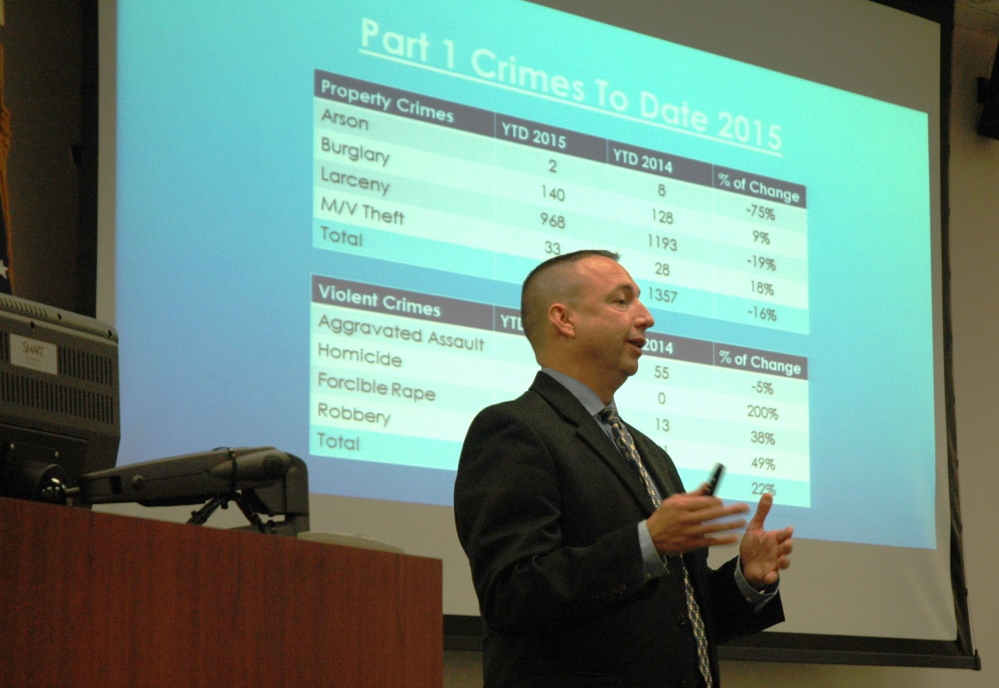As opiate addiction spikes in every corner of the country, hitting rural and suburban communities in places like Maine for the first time, there is a unanimous call for government to do something, but a paralyzing debate on what to do.
Too much time has already been wasted arguing whether addiction is a public safety problem or a public health problem.
For those who argue that addiction is a failure of willpower, and what we need are tougher laws to scare addicts away from their habit, they ought to pay some attention to the people who are tasked with fighting that war. In greater numbers, law enforcement leaders are saying that they are not the answer.
Consider this statement, which Portland Police Chief Michael Sauschuck made at a forum in Portland this week:
“I’m standing here as the chief of the largest municipality in the state of Maine telling you that we cannot arrest our way out of this problem, period. It’s not going to happen. As a warrior in the war on drugs – I was an agent in Maine Drug Enforcement, I ran the Cumberland County task force for Maine Drug Enforcement – I am telling you we cannot arrest our way out of this problem.”
Or this from an April 3 Maine Voices column by Sagadahoc County Sheriff Joel A. Merry and Bath Police Chief Michael Field, who said what they need to fight the drug epidemic is expanded Medicaid coverage for low-income Mainers who need treatment:
“We know that treatment saves lives and health coverage is important in accessing treatment. We see coverage as a vital community wide benefit that can prevent crime, violence and suffering, saving our criminal justice system resources, time and money.”
Forty years of the war on drugs shows what will work and what won’t.
A 2015 report paid for by the Pew Charitable Trusts showed the weakness of an aggressive enforcement response. Researchers estimate that the chances of a drug trafficker being arrested during a transaction is about one in 15,000, obliterating any effective deterrence. Of the drug offenders who are caught and sent to prison, approximately 75 percent return within three years.
What has been proven to work is a coordinated effort of targeted law enforcement to break up drug networks and drive up street prices, combined with access to high-quality treatment. When fighting opioid addiction, medication-assisted treatment, such as methadone or buprenorphine, combined with behavioral therapy has the best records of success.
But while the state mourns hundreds of overdose deaths every year, it is official state policy to drop people on MaineCare from life-saving medicine assisted treatment when they hit an arbitrary two-year cap. Addicted patients with insurance coverage cannot find clinics or qualified physicians to treat them without traveling long distances.
These policies perpetuate addiction, creating an impossible problem for law enforcement.
No one knows better than the police that treating drug addiction as a crime only makes the problem worse. It’s time that we listen to them.
Send questions/comments to the editors.


